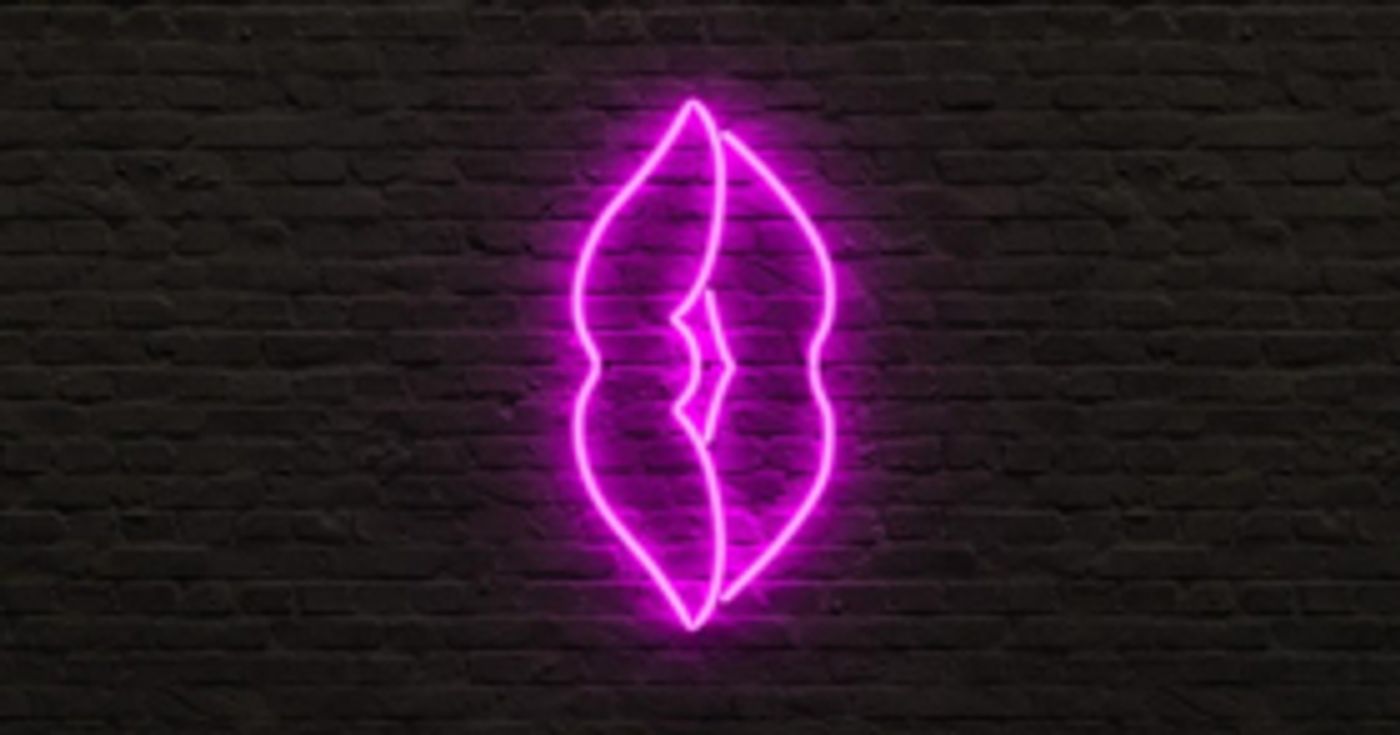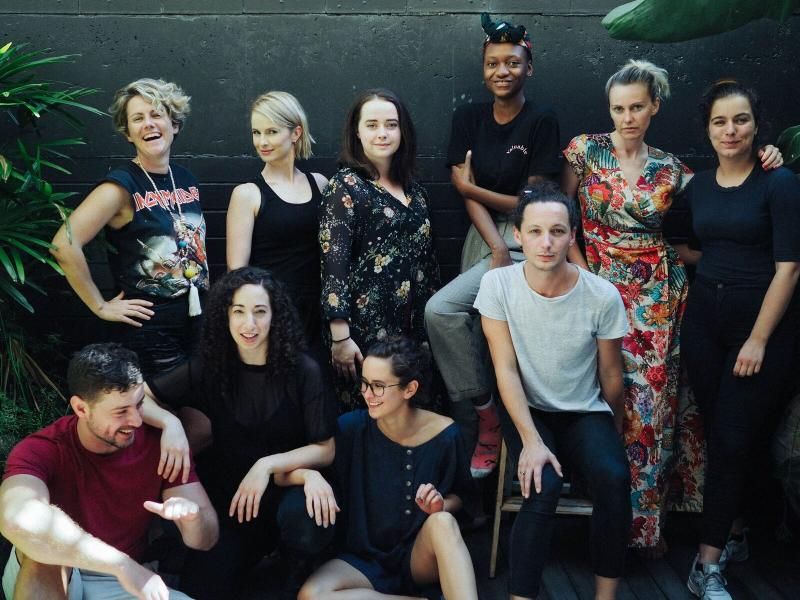Interview: Violette Ayad and Eliza Sanders - talking about the play and process of working on REVOLT. SHE SAID. REVOLT AGAIN


Eliza Sanders (Performer and Co-Artistic Director of House Of Sand) and Violette Ayad posed a few questions to each other ahead of the opening of REVOLT.SHE SAID.AGAIN
VA: What do you think drew House of Sand, Charles (Director and Co-Artistic Director of House Of Sand) and yourself, to this play?
ES: The script is hilarious, visceral and its powerful. Its not black and white and it asks more questions than it answers but most importantly it shines and very bright light on the complex multifaceted concept of feminism and unpacks it for the current world. The content is important to us as fierce believers and supporters of women as powerful, important, intelligent, courageous entities who can be infinite sources of good but who's power is suppressed by the structures of society.
Alice Birch also gives the director and performers an incredible amount of agency, most of the script does not prescribe who says what lies or indicate staging really at all. The possible interpretations of the language and stage are limited and allow the creative team to really put their own stamp on it.
ES: What made you interested in working with House of Sand?
VA: I've known Charles for a few years now-we first crossed paths at NIDA and then in various social settings-and though we hadn't worked creatively together, I'd seen his work as a student, and we'd spoken broadly about theatre and ideas. I felt that we shared a similar commitment to the integrity of our ideas and beliefs, which made for good conversation. We also had similar, or at least intersecting, views on what theatre should be and do. Collaboration as the core of creating theatre is something I'm committed to and I feel aligns very much with the House of Sand ethos.
ES: What excites you about this play?
VA: So many things. This play feels so current-maybe the most 'now' play I've read recently. When I first read the play, I was stunned by how much of it felt like a representation of the inside of my head and heart. It's exciting to have ideas and experiences and thought processes that I can truly relate to, be expressed in a way that is both amusing and thought provoking. I think I had become so used to having to reach out and dig for the relevance of plays written by rich, white men from decades ago that when something comes along and meets you, in your experience and from your viewpoint, it's something really special.
VA: What do you think this play is about?
ES: Its about so many things! That's why it really excited me personally, it can be interpreted in many different ways. Everything relates back to feminism in some capacity but not in any traditional way. Throughout the play women experiment with radical feminist acts in clever and funny ways that question the most deeply held concepts of patriarchal structures while also highlighting inconsistencies within feminisms. Its a call to arms for a new radical feminism and an ingenious dissection of language and human interaction.
The language and concepts are so rich that it has as many different meanings as there are people who see it. Each audience member will see it through their own understanding of feminism and it certainly doesn't decide anything for you! It raises questions far far more than it answers them.
ES: Is it important? Why now?
VA: Yes. Critically. Beyond being an exploration of current-day feminism, this play is investigating how we-globally-are thinking and how we're communicating and actioning those thoughts. In a climate of shifting definitions this play provides an opportunity to step back and interrogate our relationship to language-are we communicating effectively anymore? Were we ever? And what does this mean for compassion, empathy, and the road towards equality? Very early on, I stopped thinking of this text as strictly 'feminist' and began to see it as a series of interrogations of the various processes we're undertaking in our global mission towards building a better society. Are we on the right path and can we even articulate what our goals are?
VA: Which piece of text do you most relate to?
ES: Act three! Its totally mental, hilarious and on first hearing sounds completely random, but when you hear It a few times you start to hear some confusing, powerful and evocative ideas pushing through the noise. Mostly I love the noise of it though, I love how the rhythm of the words play off each other and the lines between actor and character are broken down. Its something that could stand on its own as a piece of nonsense text but is brought into such a harsher more critical light by being after the first half of the play. Its load and weird and hilarious - all the things I like in a piece of text.
Its telling you something but its up to you to decide what you hear and what you take from it. I love the power in ambiguity. I love the acceptance of confusion. So often in life our thought and emotions are messy and confusing but in fiction it is all sorted neatly on the page like it should make sense but this act doesn't do that. The structure is like a real brain trying to make sense of a very complicated set of things. Its present, truely human and funny - for me the combination of those things is so engaging and powerful.
VA: Whats been your favourite part of the rehearsal process so far?
ES: Working on Act 1 scene 1 with Richard. I've never done a formal acting training or been in a play before. All of my acting experience comes through dance and physical theatre works and mostly through my own solo work. So its really exciting to have a scene partner and to have the challenge of tracking the emotional logic of the back and forth.
Its also a character that is quite different to how I am in real life so its a lot of imaginative work and I enjoy embracing a different physicality to my everyday.
Its also been incredibly interesting and rewarding tp observe the other actors in the work developing their characters and working their interactions in the scenes in the first half of the play. The show starts a little more naturalistically than in ends so while the end for me is really exciting formally because it closer to the absurdist dance world I come from, working on the early stuff is so new, interesting and challenging for me. I'm learning loads from the incredible actors we have in the work.
ES: What do you hope the audience will take away from watching Revolt. She Said. Revolt Again. at the Old 505?
VA: Despite all of the above, I hope audiences will find this play as amusing and funny as I do. I want audience members to walk away having had a few laughs and feel comforted in the knowledge that we're all fumbling through confusing and often overwhelming times together. In line with the idea that art should comfort the disturbed and disturb the comfortable, I hope audiences feel both confronted, and embraced.
VA: Who would you most like to look out and see in the audience of this show?
ES: Young women who've never questioned their worth or power but who can be given the opportunity to see how much work there still is to do. How much more potential their is for women. Particularly in a country where they have grown up felling equal to their peers as through maybe we don't need feminism in Australia but to be invited to see how much better it really could be. And to be amused by how something really complicated and tragic can be so absolutely ridiculous and hilarious. Its a contradiction and its challenging and young women are the minds that need to see it.
ES: When did you start identifying as a feminist and why?
VA: I can't pin point an exact moment, but the transition lies somewhere in my late teens. I think it was the realisation that I might be prevented from reaching my full potential or realising my hopes and dreams by virtue of being born with a vagina.
VA: Eliza, what is your favourite word to describe a vulva or vagina? Your least favourite?
ES: Such a hard question. I think I like vagina. Just say it like it is .... Although its totally situational. I have trouble with the fact that vagina does not mean vulva when that is often what people are meaning to say, but I feel a little strange saying vulva myself. I like words that elude to the whole lot but so many of them are so derogatory. But also sometimes I like that they're derogatory words. I used to hate the word Pussy but now in certain situations it can really turns me on. That does make me wonder why that changed though, I spent years being slightly uncomfortable hearing the word pussy but just putting up with it because that what was attractive to the men I was around but now I really do like it myself.
I think how we relate to our reproductive centres is endlessly complicated and fascinating. I know that I don't like when people get squeamish and say things like 'your lady bits' - first of all, not all ladies have those bits and second, we're grown ups we don't need to be ashamed of whats between our legs.
How we speak about our vaginas and vulvas is complicated and multifaceted and there are so many different contextual and societal factors that influence what our words really mean.... And that one of the things Alice Birch is doing in Revolt - helping us to see the endlessly complicated implications of language in feminism.

REVOLT.SHE SAID.REVOLT AGAIN
2 - 19 May 2018
Old 505 Theatre, 5 Eliza Street, Newtown NSW
By
ALICE BIRCH
Directed by
Charles Sanders
Designed by
STEPHANIE HOWE
With
VIOLETTE AYAD
ANNA CHENEY
ENYA DALY
RICHARD HILLIAR
MOREBLESSING MATURURE &
ELIZA SANDERS
Tuesday - Saturday 8pm
Videos

